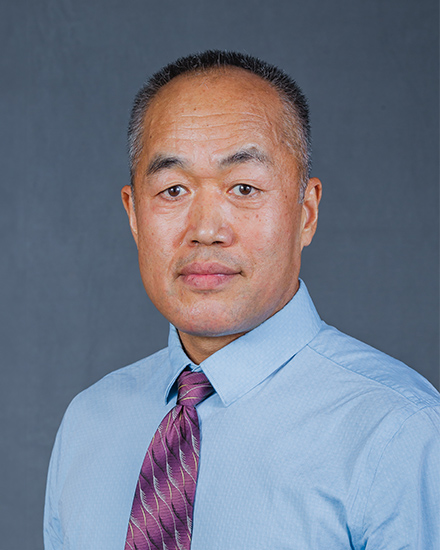Dr. Wang identified the S-nitrosylation of large GTPase dynamin-1 and its regulatory role in receptor-mediated endocytosis and bacteria invasion when he was a postdoctoral trainee. He also studied the functions of genetic variants in hereditary diseases, especially the discovery of miRNA polymorphic binding on the FGF20 gene which confers risk of Parkinson’s disease and the identification of mutations in REEP1 causing spastic paraplegia. In the early stage of his independent research, Dr. Wang investigated the role of chromosome 10q26 locus in age-related macular degeneration and identified novel genetic mutations in orbital cancer. In 2013, his lab published first that vitamin C, acting as a cofactor, promotes TET-mediated DNA demethylation. This finding has been confirmed by later reports from other groups and is now widely accepted in the field. Since then, his lab has been testing vitamin C to synergize with other therapies through the epigenetic pathway for cancer treatment. Further research in his lab revealed that G-protein coupled receptors via cAMP regulate the demethylation of DNA and histones by modulating the intracellular labile Fe(II), an essential cofactor for TET methylcytosine dioxygenases and JmjC domain-containing histone demethylase. Currently, his lab studies how vitamin C, metabolites and cellular signals regulate the epigenome, especially in cancer.




